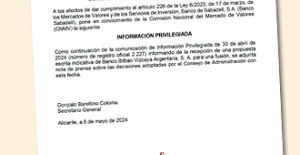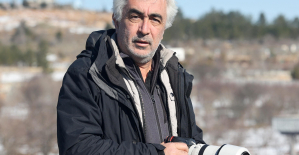A law with “harmful effects”, “attacking public freedoms”. With these terms, the military junta in Niger, in power since its coup in July, explained its decision to repeal, on September 27, a 2015 law which criminalized smugglers. In a press release read by its spokesperson on national television, the National Council for the Safeguarding of the Homeland (CNSP) argues that this law, which penalized any clandestine activity linked to migrant trafficking, “was passed under the influence of certain foreign powers (...) in flagrant contradiction with our community rules.
Europeans feared this decision. Like other juntas in the region, the CNSP began a radical divorce from its former allies as soon as it took power, first and foremost Paris, from which it demanded the departure of the armed forces. In response, Brussels – which allocated 503 million euros to Niger for the period 2021-2024 alone – announced in July the freezing of all its cooperation funds “sine die with immediate effect”. Only funds for the benefit of the populations had been maintained.
The decree signed by General Tchiani, head of the junta, which also cancels all “convictions” and “their effects” pronounced over the past 8 years in application of the 2015 law, definitively marks the break on the migration aspect. “Until then there remained a certain amount of openness, in case things were to work out. There, the military threw out the last link of cooperation, knowing that immigration is the greatest pressure for us,” confides a diplomatic source in the Sahel.
“Clearly, this is not good news for us,” agrees Serge Michailof, former director of the World Bank and director of operations of the French Development Agency (AFD). “There will be consequences, and France and Italy will be on the front line,” believes the author of Africanistan (Paperback, 2015). In fact, Niger is a hub for migrant trafficking from sub-Saharan Africa to Europe. For people coming from the Gulf of Guinea, Agadez, a large northern city and Tuareg “capital”, was until 2015 the main access point to Algeria and Libya. More than 20,000 migrants per month passed through this passage.
Around this route, an entire economic activity of “migratory services” had been built to provide housing, food and transport. So many service providers became illegal by the 2015 law, passed following the “Valletta summit”, when Niger and African countries committed to mutual cooperation against migrant smuggling. The European Commission then offered Niger significant funding for development aid, in exchange for a commitment to controlling illegal immigration flows. The president at the time Mahamadou Issoufou, satisfied with the offer, made his country the bulwark of the Union's migration policy in Africa.
Also readMigration crisis: why has the number of migrants quadrupled in the Mediterranean?
The 2015 law has immediate effect on the ground. “The migratory economy of Agadez, which supported the “border community”, and benefited the population on a small scale, was almost brought to a standstill,” explains Ali Zoubeidi, researcher in Morocco and consultant to organizations international. Before, big traffickers participated in elections and had seats in Parliament. Some mayors were involved. This entire clandestine network was dismantled by the 2015 law. Some were imprisoned, others converted to other activities.”
However, the flow of migrants has not dried up. He changes his route, taking much deadlier routes through the desert, with no water points and high risks. Rescue operations in the desert are increasing. Not to mention the explosion of internally displaced people in Niger in the face of the increasing security threat. In 2023, the International Organization for Migration (IOM) indicates that 72% of migrants passing through Agadez and Arlit are Nigeriens, 17% Nigerians, then 2% to 1% Chadians, Cameroonians, Sudanese or others. “The junta’s decision will inevitably lead to a reactivation of the Agadez road, and lead to renewed migration,” fears Serge Michailof.
Observers of politics in the Sahel also see in this act of Niamey a guarantee made towards the Tuaregs of the North, who were the first to benefit from the migratory economy. “It’s an important source of income for them. However, General Tchiani has few relations with the Tuaregs, who are no longer represented in the government, where only the Djerma, Songhai and Hausa ethnic groups are represented,” underlines Serge Michailof. “This allows us to buy back the favor of the Tuaregs,” suggests the former director of the AFD. The local media Aïr info, in northern Niger, speaks of the “relief” of the populations upon hearing the news. “In Agadez (...) since the announcement of the measure, young people welcome it and say they are ready to return to the activities they were forced to abandon 8 years ago,” reports the newspaper . The local authorities themselves were delighted, with the Agadez regional council welcoming a “very beneficial initiative for [the] region”.
The first effects of this rehabilitation of smugglers should appear “within five to six weeks” according to Ali Zoubeidi, with a flow which will “very certainly go towards Morocco, Algeria, and coming from Nigeria, Cameroon , Sudan and Eritrea,” analyzes the researcher. And a possible flight of the Nigerien population itself, exposed to a growing jihadist threat, and whose demographic growth is among the highest in the world.

 Sabadell rejects the merger with BBVA and will fight to remain alone
Sabadell rejects the merger with BBVA and will fight to remain alone In Germany, the far left wants to cap the price of “doner kebabs”
In Germany, the far left wants to cap the price of “doner kebabs” Israel-Hamas war: Gaza between hope of truce and fear of Israeli offensive in the South
Israel-Hamas war: Gaza between hope of truce and fear of Israeli offensive in the South “Mom, Dad, please don’t die”: in the United States, a nine-year-old child saves the lives of his parents injured in a tornado
“Mom, Dad, please don’t die”: in the United States, a nine-year-old child saves the lives of his parents injured in a tornado A baby whose mother smoked during pregnancy will age more quickly
A baby whose mother smoked during pregnancy will age more quickly The euro zone economy grows in April at its best pace in almost a year but inflationary pressure increases
The euro zone economy grows in April at its best pace in almost a year but inflationary pressure increases Children born thanks to PMA do not have more cancers than others
Children born thanks to PMA do not have more cancers than others Breast cancer: less than one in two French women follow screening recommendations
Breast cancer: less than one in two French women follow screening recommendations “House of the Dragon”, “Succession”… Max, the new streaming platform from HBO and Discovery, launched in France on June 11
“House of the Dragon”, “Succession”… Max, the new streaming platform from HBO and Discovery, launched in France on June 11 The A13 motorway will finally reopen this Friday, in one direction only
The A13 motorway will finally reopen this Friday, in one direction only TNT commission of inquiry: tensions between LFI deputies and Macronists before the vote on the report
TNT commission of inquiry: tensions between LFI deputies and Macronists before the vote on the report Apple unveils a new, more efficient iPad range
Apple unveils a new, more efficient iPad range The Gaza War invites itself to the 2024 Pulitzer Prizes
The Gaza War invites itself to the 2024 Pulitzer Prizes Judith Godrèche presents a short film on sexual violence in Cannes
Judith Godrèche presents a short film on sexual violence in Cannes Kevin Spacey: new trial in sight in London for the American actor, for sexual assault
Kevin Spacey: new trial in sight in London for the American actor, for sexual assault Taylor Swift fans make London pub Black Dog their new place of pilgrimage
Taylor Swift fans make London pub Black Dog their new place of pilgrimage Omoda 7, another Chinese car that could be manufactured in Spain
Omoda 7, another Chinese car that could be manufactured in Spain BYD chooses CA Auto Bank as financial partner in Spain
BYD chooses CA Auto Bank as financial partner in Spain Tesla and Baidu sign key agreement to boost development of autonomous driving
Tesla and Baidu sign key agreement to boost development of autonomous driving Skoda Kodiaq 2024: a 'beast' plug-in hybrid SUV
Skoda Kodiaq 2024: a 'beast' plug-in hybrid SUV The home mortgage firm rises 3.8% in February and the average interest moderates to 3.33%
The home mortgage firm rises 3.8% in February and the average interest moderates to 3.33% This is how housing prices have changed in Spain in the last decade
This is how housing prices have changed in Spain in the last decade The home mortgage firm drops 10% in January and interest soars to 3.46%
The home mortgage firm drops 10% in January and interest soars to 3.46% The jewel of the Rocío de Nagüeles urbanization: a dream villa in Marbella
The jewel of the Rocío de Nagüeles urbanization: a dream villa in Marbella Institutions: senators want to restore the accumulation of mandates and put an end to the automatic presence of ex-presidents on the Constitutional Council
Institutions: senators want to restore the accumulation of mandates and put an end to the automatic presence of ex-presidents on the Constitutional Council Europeans: David Lisnard expresses his “essential and vital” support for François-Xavier Bellamy
Europeans: David Lisnard expresses his “essential and vital” support for François-Xavier Bellamy Facing Jordan Bardella, the popularity match turns to Gabriel Attal’s advantage
Facing Jordan Bardella, the popularity match turns to Gabriel Attal’s advantage Europeans: a senior official on the National Rally list
Europeans: a senior official on the National Rally list These French cities that will boycott the World Cup in Qatar
These French cities that will boycott the World Cup in Qatar “The future is for us”: “disappointed” and “proud” at the same time, Al-Khelaïfi sees the glass half full after the elimination of PSG
“The future is for us”: “disappointed” and “proud” at the same time, Al-Khelaïfi sees the glass half full after the elimination of PSG PSG: “Since January, these have not been my best matches,” agrees Zaire-Emery, who promises to “come back stronger”
PSG: “Since January, these have not been my best matches,” agrees Zaire-Emery, who promises to “come back stronger” “What is this question, honestly?” : Nasser Al-Khelaïfi (very) annoyed after PSG-Dortmund
“What is this question, honestly?” : Nasser Al-Khelaïfi (very) annoyed after PSG-Dortmund “I am the guy who has to score the goals”: Mbappé does not hide and assumes responsibility after PSG’s exit
“I am the guy who has to score the goals”: Mbappé does not hide and assumes responsibility after PSG’s exit


















